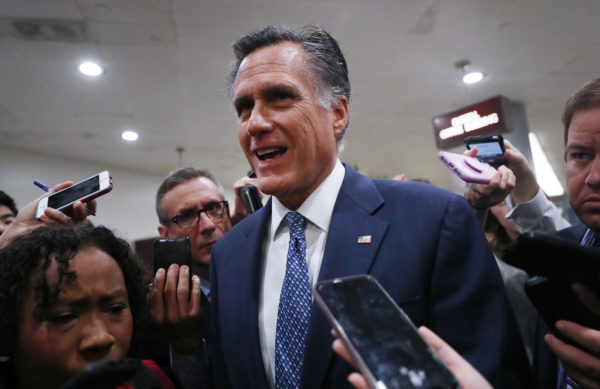Republican leaders in government are warming up to the idea of sending most American adults a check to keep the economy intact through the coronavirus pandemic.
On Monday, the office of Utah Sen. Mitt Romney released a statement promoting a series of coronavirus relief proposals, including sending $1,000 to almost every adult in the United States.

“Every American adult should immediately receive $1,000 to help ensure families and workers can meet their short-term obligations and increase spending in the economy,” said a statement from Romney, who was the Republican presidential candidate in 2012 when Barack Obama won re-election. “Congress took similar action during the 2001 and 2008 recessions. While expansions of paid leave, unemployment insurance, and SNAP benefits are crucial, the check will help fill the gaps for Americans that may not quickly navigate different government options.”
A day later, Treasury Secretary Steven Mnuchin said the Trump administration is open to the idea in order to keep the economy from being ruined by the COVID-19 outbreak.
“Americans need cash now, and the president wants to get cash now — and I mean in the next two weeks,” Mnuchin said during a news conference as President Donald Trump looked on.
The White House plans to consult Senate GOP leaders about the matter. Mnuchin also clarified that money would not go to every tax bracket.
“Some people shouldn’t be getting a thousand dollars,” Mnuchin said. “We don’t need to send people who make $1 million a year checks.”
“I think we’ll do something to get money to them as quickly as possible,” Trump said at the news conference.
The check distribution is reminiscent of the universal basic income concept promoted by some on the left, namely former Democratic presidential candidate Andrew Yang. Under a UBI program, some Americans would receive a check from the government without any strings attached. Yang told Rolling Stone he was happy to see the idea become a bipartisan project.
“It’s a thrill that you have people at every point in the political spectrum coming together and trying to solve the problem in a rational apolitical way,” Yang said.
Romney also endorsed grants to small businesses, provisions for students, and services for workers in the health care sector.
“We also urgently need to build on this legislation with additional action to help families and small businesses meet their short-term financial obligations, ease the financial burden on students entering the workforce, and protect health workers on the front lines and their patients by improving telehealth services,” the statement continued. “I will be pushing these measures as Senate discussions continue about an additional relief package.”


